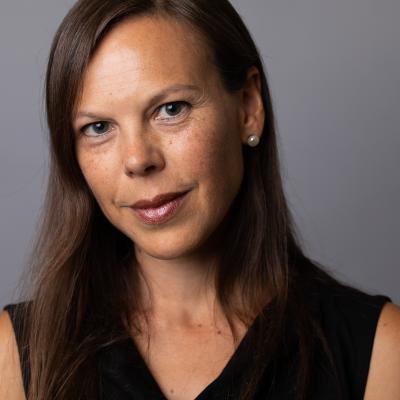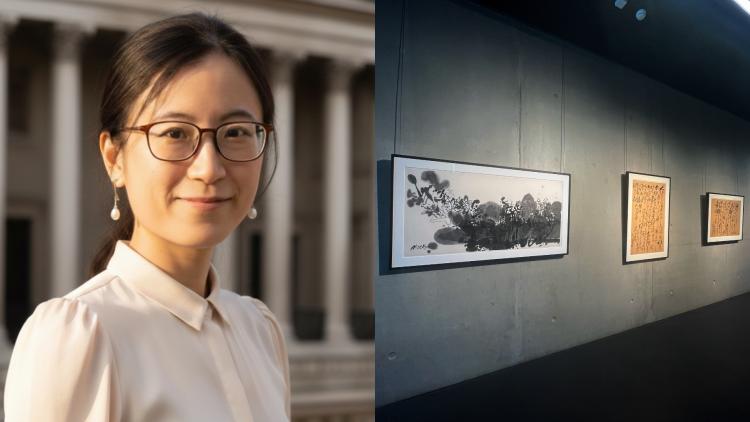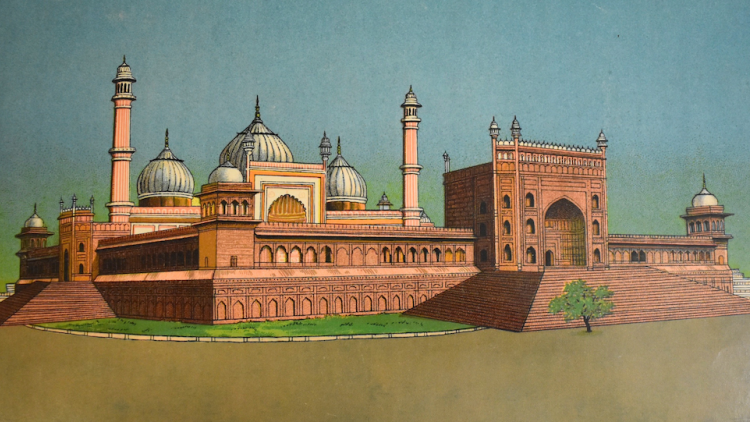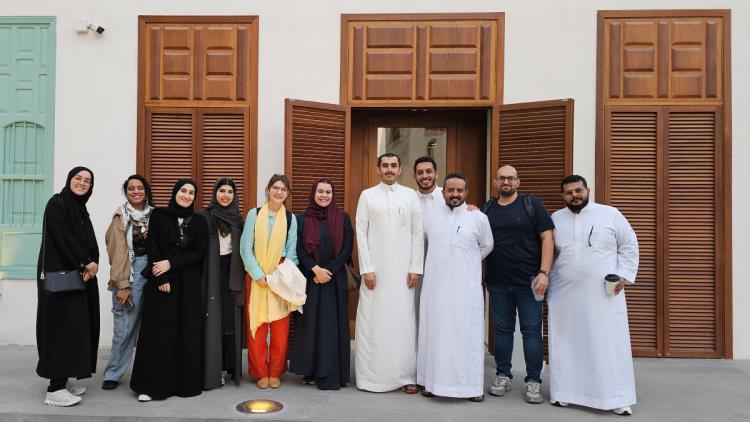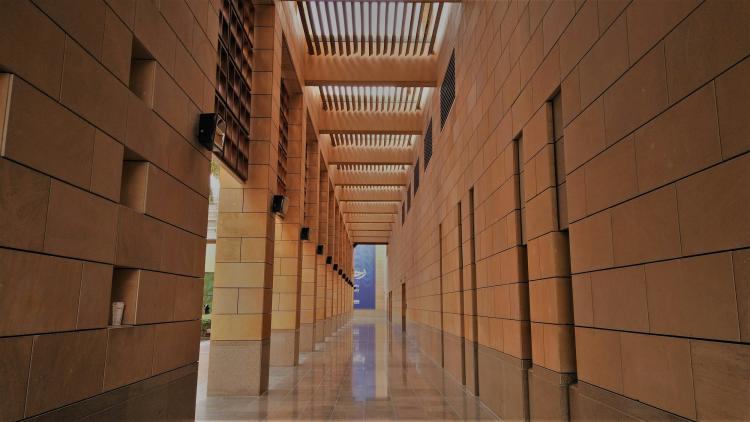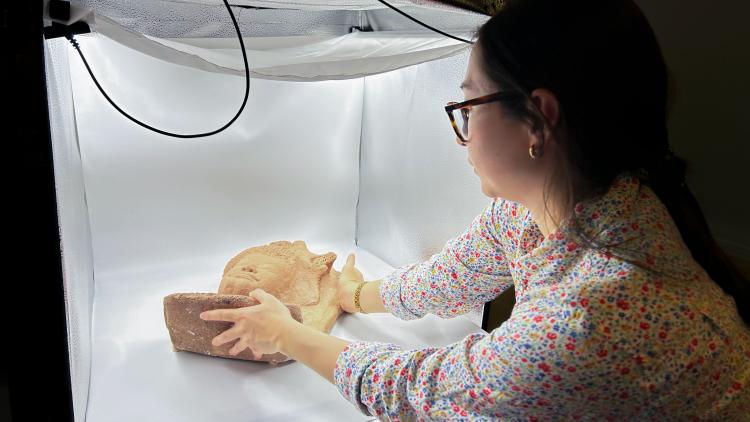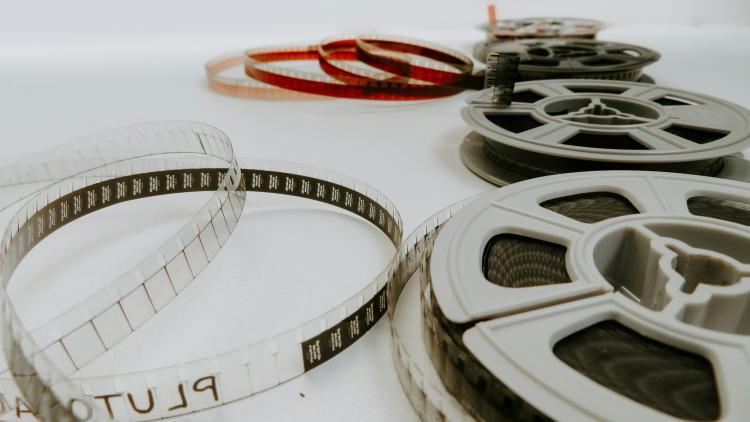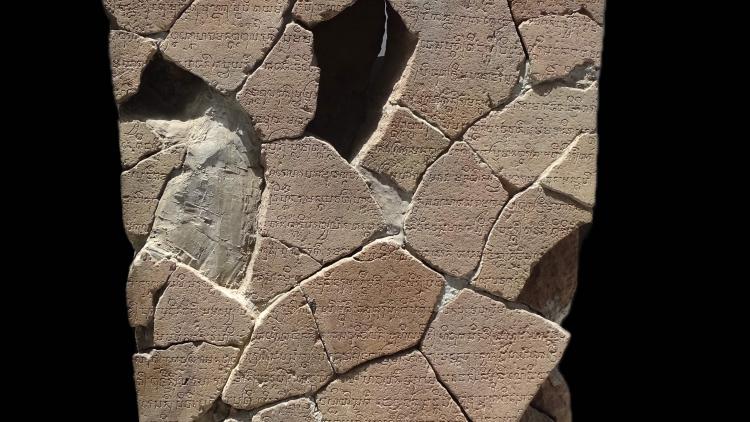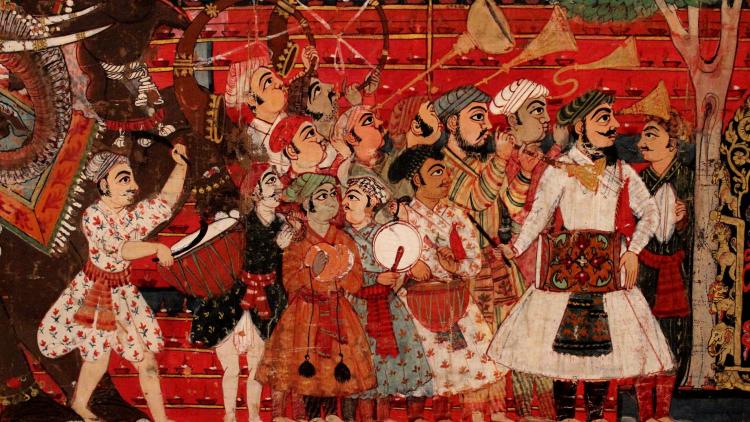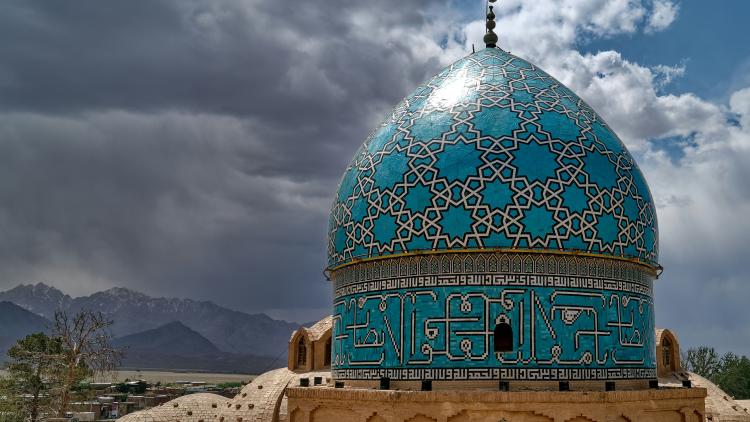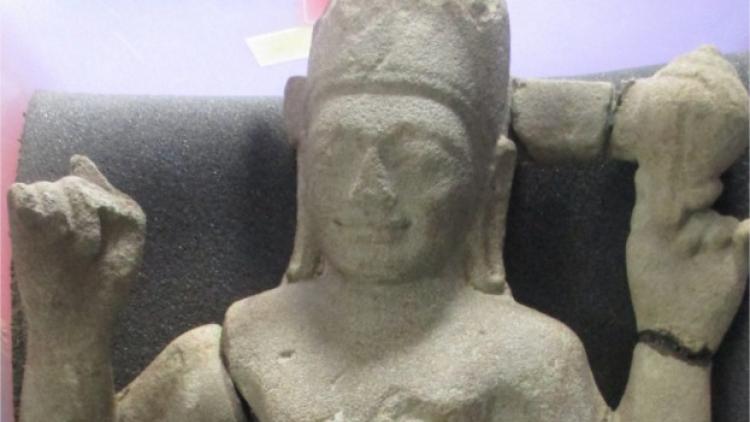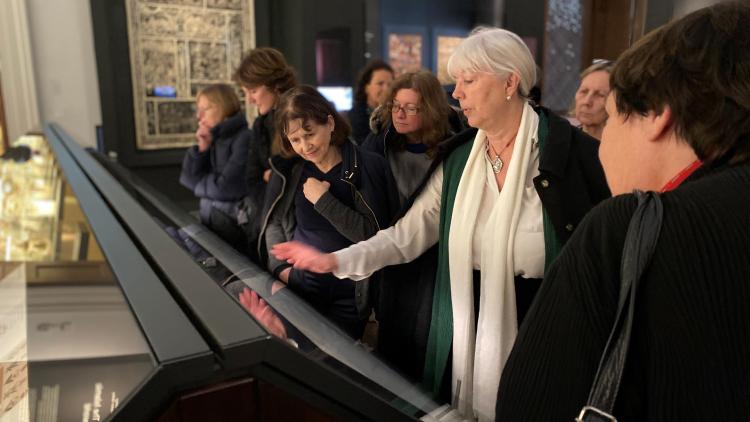MPhil/PhD in Film Studies


Key information
- Duration
- 3 years full-time or 6 years part-time
- Attendance mode
- Full-time or part-time
- Location
- On campus
- Fees
-
Home (full-time): £5,055 per year
International (full-time): £23,390 per year - Entry requirements
-
We normally require a 2.1 bachelor's degree (or its equivalent) plus a Masters degree in appropriate subject area plus one reference. In exceptional cases we may accept applicants who do not meet these criteria if they show evidence of a strong Masters degree and/or appropriate level of relevant work experience. International applicants should also see Doctoral School English language requirements
Course overview
The Centre for Creative Industries, Media, and Screen Studies (CCIMSS) invites applications for disciplinary and interdisciplinary research in film and screen studies with particular reference to Africa, Asia and the Near and Middle East.
The Centre’s geographical focus on film/screen industries and movements beyond the dominant Western ‘global’ Hollywood and European economies of production, distribution and exhibition, makes the Centre unique in its approach. We are also keen to promote research on the transnational, transcultural and multi-media nature of the image in the twentieth and twenty-first centuries.
In a ‘global’ industry, film and media scholars and practitioners are increasingly recognising the need for a move toward the study of image cultures and industries beyond the historical hegemonies of the European and Hollywood industries.
Why Film Studies at SOAS?
- SOAS is ranked 13th in the UK in the 2022 QS World University Rankings for Arts and Humanities
- the range of expertise in non-Western film/screen studies and cultures offered at SOAS provides a unique opportunity to respond and contribute to current critical and theoretical debates in these disciplines
- SOAS provides a vibrant intellectual home for research students with an interest in creative industries, media and screen studies.
Structure
Year 1
In the first year, students prepare for research by following the School of Arts MPhil/PhD research methods course. Students may also be encouraged by supervisors to attend additional taught courses relevant to their research and to their training needs. These may include specialist disciplinary, language or regional culture courses or research training in other Departments outside the School of Arts.
Year 1 full time students (year 2 for part time students) are required to submit a core chapter and research proposal (of about 10,000 words) in May (the exact date varies each year), typically including the following elements:
- Research rationale and context of proposed research
- Main research questions
- Literature review
- Theoretical and methodological framework and considerations
- Proposed research methods
- Ethical issues (where applicable)
- Outlining structure of PhD dissertation
- Schedule of research and writing
- Bibliography.
Adjustments to one or more of these sections, including additions or deletions where appropriate, are possible by prior arrangement between the students and lead supervisors.
The upgrade process from MPhil to PhD status is based upon an assessment of the core chapter by the student’s research committee, and upon a 20-30 minute oral presentation, followed by a discussion. The oral presentation is given to Departmental staff and research students. On successful completion of the extended proposal, students are formally upgraded to PhD and proceed to the second year. (If the assessors consider there to be shortcomings in the upgrade proposal, students will be asked to revise it to their satisfaction before the upgrade to PhD status can be confirmed.)
Students are not normally permitted to proceed to the second year until the upgrade process has been completed.
Year 2
The second year (or part time equivalent) is normally spent engaged in research. This may be by any combination of fieldwork and research in libraries and material collection as agreed between the student and the supervisor(s).
Year 3
The third year (or part time equivalent) is devoted to writing up research for the PhD thesis. During this time, students will normally give a presentation in a research seminar organised by the Departmental Research Tutor, comprising a select number of staff members with special expertise in the topic and other research students. During the third year (or part-time equivalent) students will present draft chapters to their main supervisor for comment, before completing a final draft of the thesis. Once a full draft is complete, the work is assessed by all members of the supervisory committee and the student can either submit the thesis or move on to Continuation Status to be given a further 12 months to complete the thesis and submit for examination. The thesis must be completed within 48 months from the time of registration (or part-time equivalent).
The thesis - not to exceed 100,000 words in length - is examined by two leading authorities in the field. Between them the nominated examiners should demonstrate strong experience of research degree examining in the UK and the University of London and be able to provide clear independent external oversight. If neither examiner has University of London experience, a Chair may be required.
PhD Degrees are awarded by SOAS from registration and are subject to SOAS regulations.
Important notice
The information on the website reflects the intended programme structure against the given academic session. The modules are indicative options of the content students can expect and are/have been previously taught as part of these programmes.
However, this information is published a long time in advance of enrolment and module content and availability is subject to change.
Teaching and learning
All first-year PhD Film Studies students are provided with research training through the School of Arts-wide first year MPhil/PhD research methods course. This allows for specific disciplinary training as well as broader training in research methodologies and ethics.
All students register in year 1 of the programme as MPhil students. The upgrade from MPhil to PhD takes place at the end of the first academic session for full time students (or at the end of the second academic session for part time students).
All new MPhil/PhD students are provided with a supervisory committee of two members, comprising a main or primary supervisor, and a second supervisor. The split in time commitment across the supervisory committee is 60:40. In the first year students are expected to meet their main supervisor on a bi-weekly basis for a period of at least one hour.
The student’s primary supervisor is always a member of the Department in which the student is registered. The second supervisor, who acts in a supplementary advisory capacity, may be from the same Department, or other Departments/Centres in the Faculty of Languages and Cultures or in Departments/Centres in the other Faculties of the School.
Depending on the nature of the research, joint supervision is sometimes recommended, under the direction of two primary supervisors. In such cases the student has only one further supervisor on their committee.
The student’s progress is further overseen by a Departmental Research Tutor.
SOAS Library
SOAS Library is one of the world's most important academic libraries for the study of Africa, Asia and the Middle East, attracting scholars from all over the world. The Library houses over 1.2 million volumes, together with significant archival holdings, special collections and a growing network of electronic resources.
Scholarships
Employment
Students in the School of Arts develop a critical and theoretically informed approach to global arts and culture. In addition to an intercultural awareness and practical expertise, graduates gain a wide portfolio of transferable skills which are especially sought after in the creative and cultural industries.
Recent graduates have been hired by:
- Christie’s
- Christine Park Gallery
- Crisis
- Design Museum
- Hong Kong Museum Of Art
- India Foundation For The Arts
- Japanese Gallery
- Museum of East Asian Art
- Music in Detention
- National Gallery
- Pan Arts
- People Projects Culture & Change
- Roundhouse Trust
- Somerset House Trust
- Songlines Magazine
- Sotheby's
- South Asian Art UK
- Stratford Circus Arts Centre
- Taiwan Embassy
- The Alliance for Global Education
- The British Embassy
- The National Museum Of Korea
- The Royal Collection
- Victoria and Albert Museum
Find out about our Careers Service
